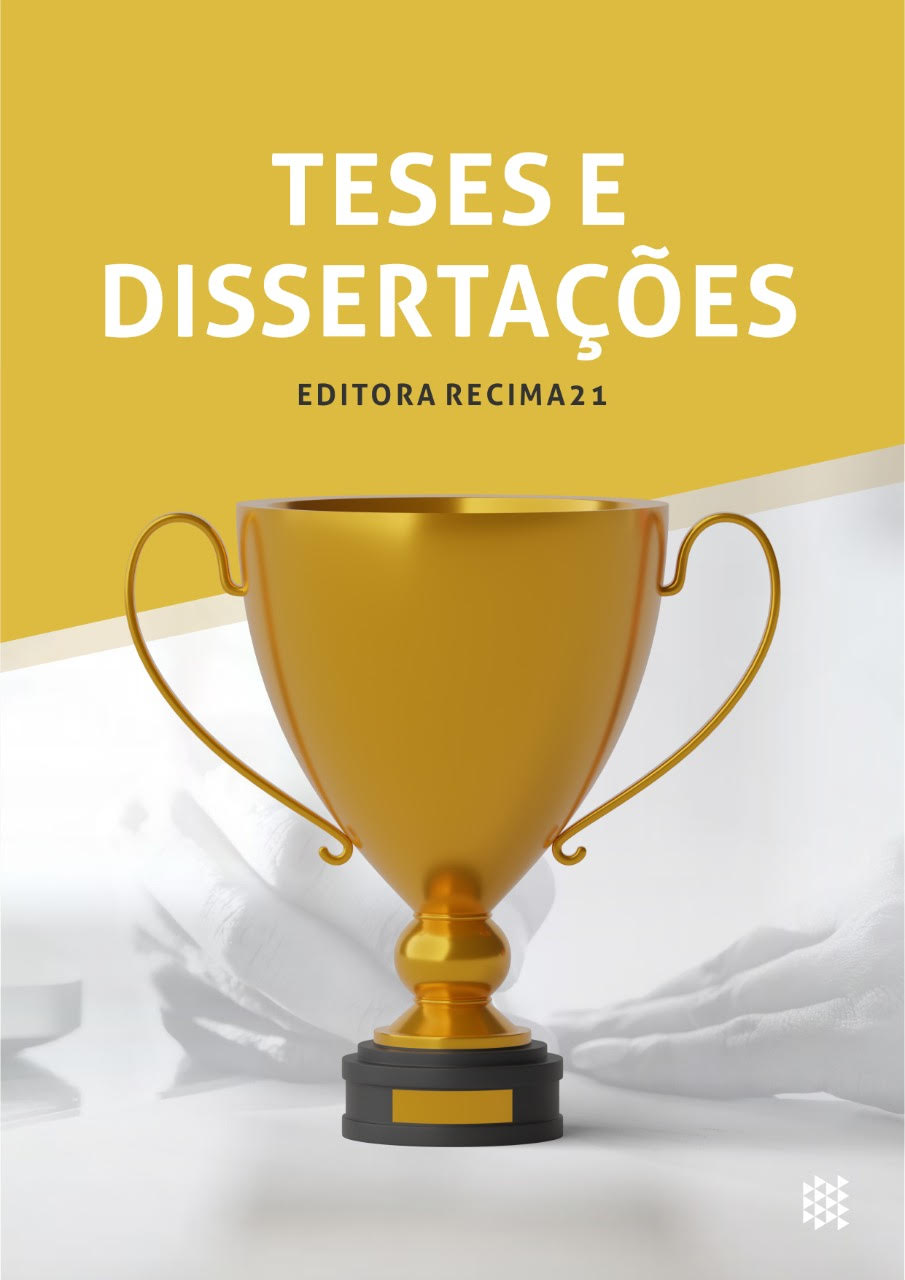PSYCHOMOTRICITY: FINE MOTRICITY IN TEACHER EDUCATION
DOI:
https://doi.org/10.47820/recima21.v4i1.2901Keywords:
affectivity, psychomotor triad, morphological triad, psychoanalytic triad, teacher education.Abstract
The choice of the theme psychomotricity: Wallonian alternation in the integral formation of the student is based on bibliographic references in the Wallonian principle that prioritizes the affective dimension over the cognitive and motor dimensions. This research is inserted in the qualitative methodology and cuts the theme deficiency in fine motricity and takes use of the advances of neuroscience to present a functional morphological view of Wallonian systems in order to give greater clarity the dimension of the psimotricity field; however, with views and finishes in fine motricity, as well as in the relevance of the knowledge that teachers have on the subject, by default. Among the many factors that involve the field of psychomotricity, the study has as object the integral formation of the student in relation to the affective dimension to balance fine motricity. The research was motivated by the difficulty observed in teachers to understand more broadly the importance of affectivity in the balance of the tricity/affectivity/cognition triad proposed here. Although this research prioritizes more up-to-date references directed to teacher education, it does not rule out established principles. The results obtained in this research contemplate the validation or not of the hypothesis that there is no relevant knowledge on the subject by teachers making it necessary to train courses for teachers more specific and better structured in the most recent research bases in the field of psychomotricity cut in fine psychomotricity.
Downloads
References
Altmicks, A. H. (2014). Principais paradigmas da pesquisa em educação realizada no Brasil. Revista Contrapontos, 14(2), 384. https://doi.org/10.14210/contrapontos.v14n2.p384-397
Ausubel, D. P. (1963). The psychology of meaningful verbal learning. Grune and Stratton.
Bach Jr., J. (2012). A pedagogia de Waldorf como educação para a liberdade: reflexão a partir de um possível diálogo entre Paulo Freire e Rudolf Steiner [Universidade Federal do Paraná]. http://www.ppge.ufpr.br/teses/D12_Jonas Bach Junior.pdf
Biasotto, L. C., Fim, C. F., & Kripka, R. M. L. (2020). A teoria da aprendizagem significativa de David Paul Ausubel: Uma alternativa didática para a educação matemática. Brazilian Journal of Development, 6(10), 83187–83201. https://doi.org/10.34117/bjdv6n10-668
LDB, Pub. L. No. Lei No 9.394 (1996).
Carvalho, E. M. R. (2003). Tendências da educação psicomotora sob o enfoque walloniano. Psicologia: Ciência e Profissão, 23(3), 84–89.
Carvalho, P. C. O. (2013). A importância da psicomotricidade nas aulas de educação física para estudantes com deficiência fisico-motora [Universidade Federal da Bahia]. https://repositorio.ufba.br/ri/bitstream/ri/19034/1/Dissertacao.Poliana.FINAL.pdf
Chutles, L., & Valentini, N. C. (2014). Alfabetização e desenvolvimento motor: um estudo sobre o desenvolvimento da escrita e motricidade fina de crianças dos 1 e 2 anos do ensino fundamental. ResearchGate, 56–62. www.researchgate.net/publication/276921391_ALFABETIZACAO_E_DESENVOLVIMENTO_MOTOR_UM_ESTUDO_SOBRE_O_DESENVOLVIMENTO_DA_ESCRITA_E_MOTRICIDADE_FINA_DE_CRIANCAS_DOS_1_E_2_ANOS_DO_ENSINO_FUNDAMENTAL
Dantas, H., Oliveira, M. K., & Taille, Y. de La. (1992). Piaget, Vigotski, Wallon: teorias psicogenéticas em discussão. Summus.
Delors, J. (2013). The treasure within: Learning to know, learning to do, learning to live together and learning to be. What is the value of that treasure 15 years after its publication? International Review of Education, 59, 319–330. https://doi.org/https://doi.org/10.1007/s11159-013-9350-8
Fabricius, W. V. (1983). Piaget’s theory of knowledge: Its philosophical context. Human Development, 26(6), 325–334. https://doi.org/10.1159/000272894
Freire, P. (2006). Pedagogia da Autonomia: saberes necessários à prática educativa. Paz e Terra.
Gardner, H. (1995). Inteligências Múltiplas: a Teoria na Prática. Artes Médicas.
Germano, G. D., Pinheiro, F. H., Okuda, P. M. M., & Capellini, S. A. (2013, September 25). Percepção viso-motora de escolares com transtorno do déficit de atenção com hiperatividade. Communication Disorders, Audiology and Swallowing, 337–341. https://doi.org/10.1590/s2317-17822013000400007
Ivic, I. (2010). Lev Semionovich Vygotsky (MEC/UNESCO (ed.)). Massangana. http://www.dominiopublico.gov.br/download/texto/me4685.pdf
Kant, I. (2007). Fundamentação da Metafísica dos Costumes (1a ed.). Edições 70, Lda.
Latansio, V. D. (2010). A significação na epistemologia genética: contribuições para uma teoria do conhecimento [Universidade Estadual Paulista “Júlio Mesquita Filho”]. www.marilia.unesp.br/Home/Pos-Graduacao/Filosofia/Dissertacoes/latansio_vd_me_mar.pdf
Lima, A. P. de. (2010). O modelo estrutural de Freud e o cérebro: uma proposta de integração entre a psicanálise e a neurofisiologia. Archives of Clinical Psychiatry (São Paulo), 37(6), 280–287. https://doi.org/10.1590/S0101-60832010000600005
Matusov, E., & Hayes, R. (2000). Sociocultural critique of Piaget and Vygotsky. In New Ideas in Psychology (pp. 215–239). School of Education, University of Delaware.
Montezanti, B., & Dias, T. (2016, December 27). Por que ‘opinião não é argumento’, segundo professor de lógica da Unicamp. Coordenadoria de Centros e Núcleos Interdisciplinares de Pesquisa . www.cocen.unicamp.br/noticias/id/107/por-que-opiniao-nao-e-argumento-segundo-professor-de-logica-da-unicamp
Morin, E. (2001). Seven complex lessons in education for the future (S. and C. O. by the United Nations Educational (ed.)). UNESCO. https://unesdoc.unesco.org/ark:/48223/pf0000123074
Piaget, J. (1972). Development and learning: Reading in child behavior anddevelopment. Hartcourt Brace Janovich. (In Lavattelly, C. S. e Stendler, F.).
Piaget, J. (1986). Nascimento da Inteligência na Criança (1a ed.). Publicações Dom Quixote.
Piaget, J. (1999). O pensamento e a linguagem da criança. Martins Fontes.
Queiroz, S. S. de, Dias, L. P., Chagas, J. D., & Nepomoceno, P. dos S. (2011). Erros e equilibração em psicologia genética. Psicologia Escolar e Educacional, 15(2), 263–271. https://doi.org/10.1590/S1413-85572011000200008
Stoltz, T. (2005). Mídia, cognição e educação. Educar Em Revista, 26, 01–10. https://doi.org/10.1590/0104-4060.389
Vieira, P. A. (1984). Sermões. Editora Três.
Wecker, J. E., Soares, M. M., & Nemos, D. F. L. (2023). Aula de anatomia. https://www.auladeanatomia.com/sistemas/216/sistema-nervoso

Downloads
Published
License
Copyright (c) 2023 RECIMA21 - Revista Científica Multidisciplinar - ISSN 2675-6218

This work is licensed under a Creative Commons Attribution 4.0 International License.
Os direitos autorais dos artigos/resenhas/TCCs publicados pertecem à revista RECIMA21, e seguem o padrão Creative Commons (CC BY 4.0), permitindo a cópia ou reprodução, desde que cite a fonte e respeite os direitos dos autores e contenham menção aos mesmos nos créditos. Toda e qualquer obra publicada na revista, seu conteúdo é de responsabilidade dos autores, cabendo a RECIMA21 apenas ser o veículo de divulgação, seguindo os padrões nacionais e internacionais de publicação.












